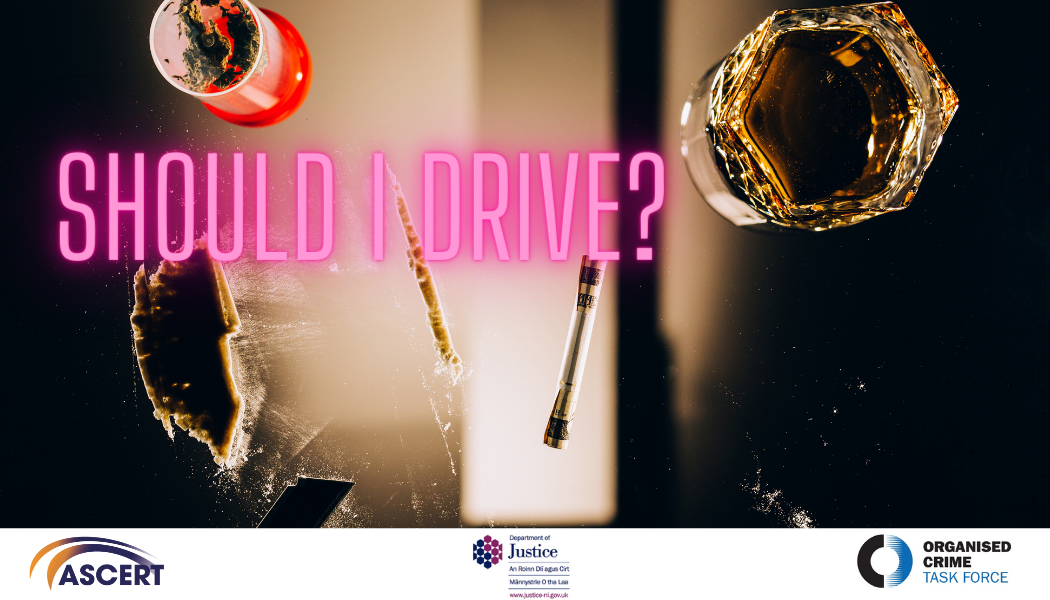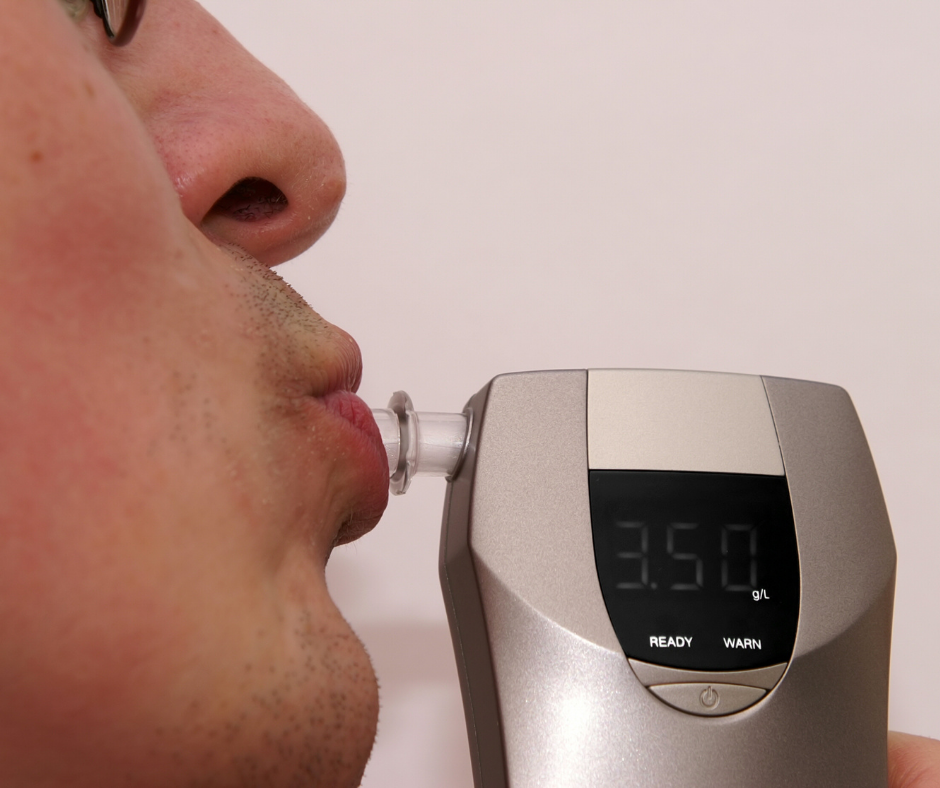Categories of Drugs
Drugs and Physical Health
Drugs and Mental Health
Mixing Drugs
Prescription Medications
Drink & Drug Driving
RESOURCE HUB:
Drink and Drug Driving

Driving having taken alcohol or drugs
Should I Drive? is a project to raise young people’s awareness of the dangers of driving while under the influence of alcohol or drugs or being a passenger in a vehicle where the driver is under the influence.
Awareness Sessions for Young People
If you would like us to deliver a drink and drug driving awareness session to the young people your work with you can express an interest here.
Drink & Drug Driving Facts
- Young people (16-24 year olds) are the group most likely to be killed or seriously injured in road traffic collisions.
- Alcohol and drug use are the second highest cause of road deaths amongst young people.
- Drivers aged 16-24 are more likely than any other group to be responsible for someone being killed or seriously injured in a road traffic collision.
- Young people are much more likely to have used drugs than other adults.
- If you drive under the influence of alcohol or drugs you are putting the lives of yourself, your passengers and other road users at risk. In 2020, there were 7 people killed in road traffic collisions where alcohol or drugs was attributed.
- There were 161 people Killed or Seriously Injured resulting from collisions involving drivers under the age of 25.
- In 2020, there were 128 young people killed or seriously injured in road traffic collisions in Northern Ireland. In 2022, this increased to 180.
Some of the effects of driving under the influence of alcohol or drugs include:
- Slower reaction times
- Impaired co-ordination
- Blurred vision
- Over-confidence
- Loss of concentration
- Increased risk-taking behaviour
- Inappropriate driving
- Not being able to judge distances and speeds properly
The only safe approach is to never, ever drink and drive and to avoid driving under the influence of any substance that could affect your ability to properly concentrate on driving, how you assess risks and how you react to danger.
How Alcohol or Drugs affect you
Some of the effects of driving under the influence of alcohol or drugs include:
- Slower reaction times
- Impaired co-ordination
- Blurred vision
- Over-confidence
- Loss of concentration
- Increased risk-taking behaviour
- Inappropriate driving
- Not being able to judge distances and speeds properly

The only safe approach is to never, ever drink and drive and to avoid driving under the influence of any substance that could affect your ability to properly concentrate on driving, how you assess risks and how you react to danger.
Should I Drive?
ASCERT has partnered with drama students from Cambridge House Grammar School in Ballymena to produce this short video to dramatize the risks for young people of driving under the influence of alcohol or drugs or travelling in a vehicle driven by someone who is.

Do you know your limits?
There are strict alcohol limits for drivers. The legal alcohol limit for drivers in Northern Ireland is:
- 35 microgrammes of alcohol per 100 millilitres of breath
- 80 milligrammes of alcohol in 100 millilitres of blood
- 107 milligrammes of alcohol per 100 millilitres of urine
- It is impossible to say exactly how many drinks this equals as it is different for each person.
Legal Implications
Causing death or grievous bodily injury when under the influence of alcohol or drugs
- 14 years imprisonment
- Unlimited fine
- Ban from driving for 2 years
- An extended driving test before your licence is returned.
Causing death or grievous bodily injury when under the influence of alcohol or drugs
- 14 years imprisonment
- Unlimited fine
- Ban from driving for 2 years
- An extended driving test before your licence is returned.
Being in charge of a vehicle when over the legal limit or unfit through drink/drugs
- 3 months imprisonment
- A fine of up to £2,500
- A possible ban from driving for a period decided by the District Judge.
How can we keep ourselves safe?
- Organise your lifts before heading out if you intend to drink
- Drink non-alcoholic options
- If you are designated driver, get someone else to be sober too
- Check public transport available

How drugs affect your body
Stimulants
- Make us hyperactive and full of energy.
- Cocaine, MDMA (Ecstasy), Caffeine, Amphetamines
Depressants
- Make us calm and less anxious.
- Alcohol, Sleeping Pills, Heroin, Cannabis
Painkillers
- Make us numb and out of it.
- Ibuprofen, Naproxen, Aspirin
Hallucinogens
- Make us see things differently from normal.
- LSD, PCP, Cannabis, Ketamine, Ecstasy
How your body processes alcohol and drugs
How the body processes alcohol differs from person to person. It can depend on a number of factors:
- amount and type
- age
- weight/size
- gender
- water intake
- food intake

How long do the effects of drug last?**
- Alcohol – 1 unit of alcohol effects a person for 1 hour
- Cannabis/Weed – Up to 3 hours
- Cocaine – 1 hour
- Ecstasy Tablets/MDMA – 3-6 hours
- Heroin – 6-12 hours

How long do drugs stay in the body?**
- Alcohol – Up to 1 day
- Cocaine – up to 2 days
- Cannabis/weed – up to 4 days
- Heroin – 3-4 days
- Ecstasy tablets/MDMA – up to 3 days

** It is important to note that these are only estimates and depending on each individual and the amount you take it will effect each individual differently..

